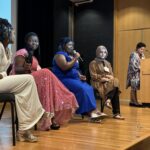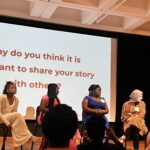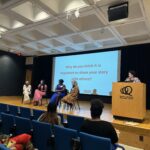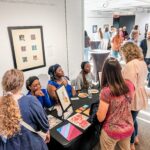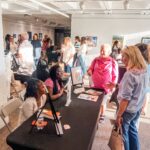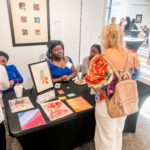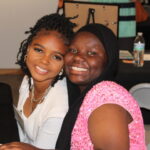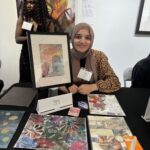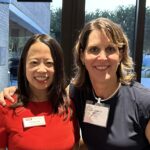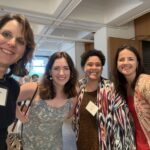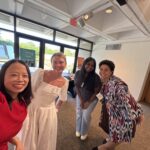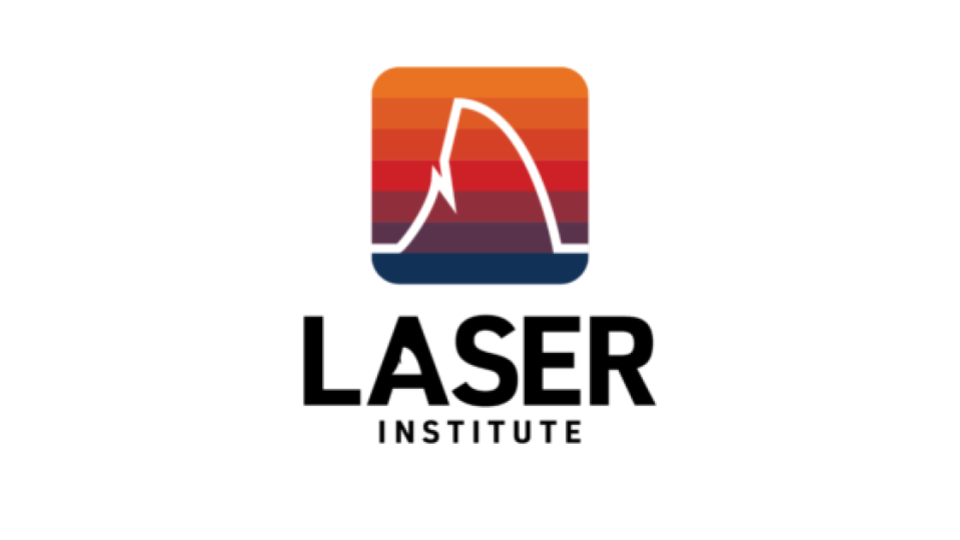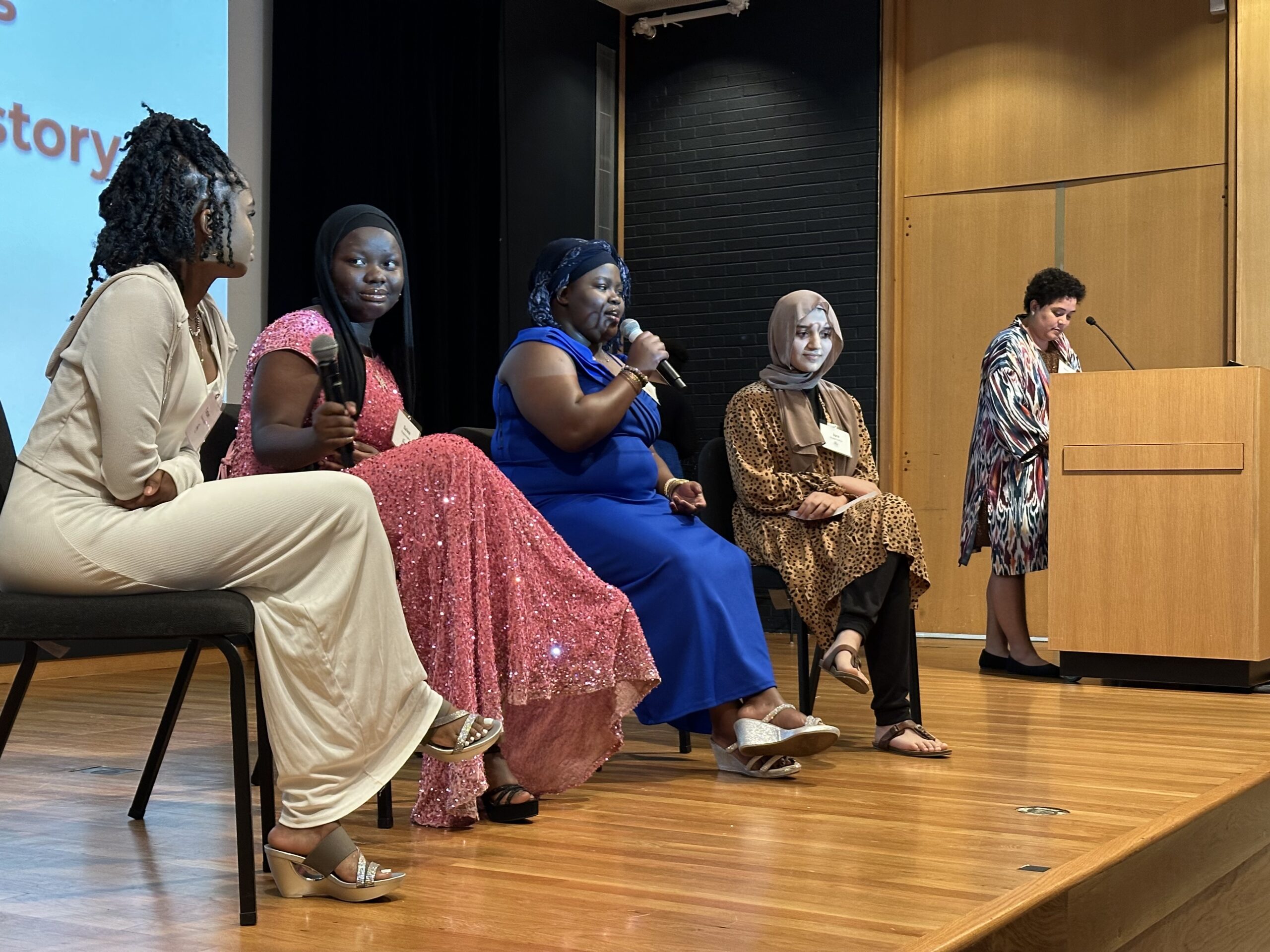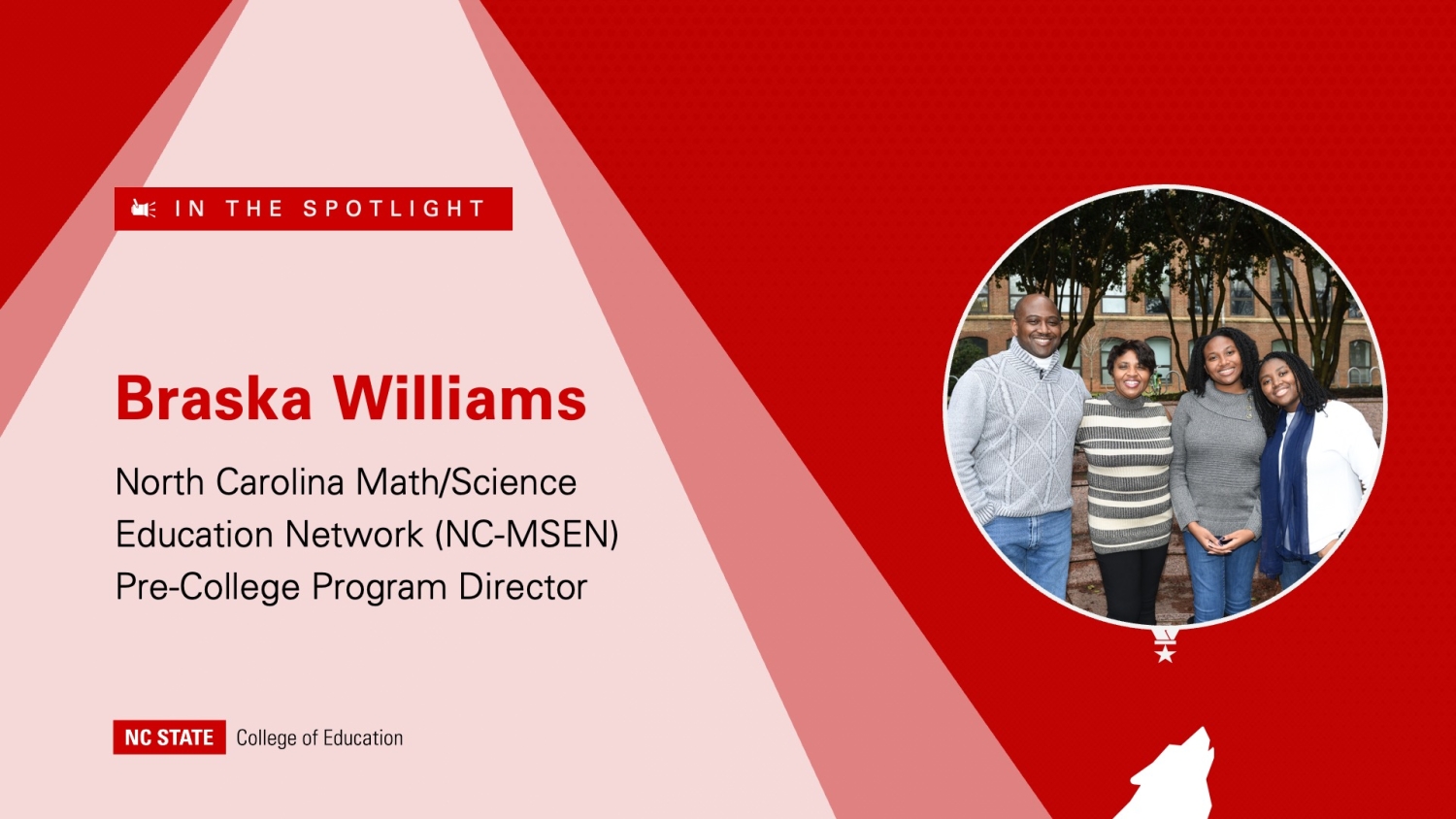Literacy and Community Initiative’s Fifth Annual Reading Celebration Highlights Refugee Stories Through Art, Writing

Eupiphanie, a 17-year-old refugee from Burundi, found peace and calm expressing herself creatively through the Literacy and Community Initiative (LCI) program.
“Life can be stressful sometimes, but when I’m being creative, I feel so much better,” said Eupiphanie in her artist statement in Refugee Hope Partners’ latest book, Brave Histories and Hopeful Futures: Volume III. “Writing and making art also helps me share my story with others. I think my life is kinda interesting, so I enjoy letting people know more about me and my experiences.”
LCI is a collaboration between the Friday Institute for Educational Innovation and the NC State College of Education that partners with community-based organizations to examine, support and promote the power of youth voices.
With the support of a Catalyst Grant from the Friday Institute and the College of Education, LCI led a yearlong trauma-informed writing and art program for RHP refugee students that culminated April 29 during LCI’s fifth annual reading celebration and art show. It was RHP’s first art show with LCI, held at the North Carolina Museum of Art (NCMA).
Members of the LCI team met with students one Saturday every month for three hours to write and create. The final product was LCI’s first multimodal book, Brave Histories and Hopeful Futures: Volume III, which printed both student narratives and writing.
“I saw them grow into confident writers, artists and leaders throughout the year,” said Crystal Lee, associate professor of English education in the College of Education, faculty fellow at the Friday Institute and founder and director of the LCI. “To witness their growth and then seeing them orally present their stories out loud for a group of 120 community members was inspiring. Students shared that they learned that they can be good writers, and they played with materials they never had before. When they took the risk to try something new, they were surprised and encouraged by what they could accomplish. They were encouraged by their peers and learned that their peers can also be great writers.”
During the reading celebration, RHP students read their written narratives from their newly released book, showcased their artwork and answered questions on their personal journeys and the writing process. This is RHP’s third student publication with LCI and the third year of this partnership, which was piloted in spring 2021.
Brave Histories and Hopeful Futures: Volume III features poetry, prose, narratives, letters and multimodal text productions through which students explore their identities, experiences and community, and advocate for meaningful changes in the world. The book shows how individual and collective voices come together to demonstrate the strength of their community.
See below for featured stories and artwork from Brave Histories and Hopeful Futures: Volume III.
Playing in the Rain By Salwa
Thirty minutes after I came back from school, it started to rain. My friend and I decided to play in the rain. We were playing in the rain, and we could smell rice and sombe. We saw people playing Horo and we went and joined them. We touched the sand. It was wet because it was raining. We heard people screaming but it was happy screams. We went to my friends’ house, and we took a shower and changed our clothes. We ate sambusa and sombe rice!
Iqra
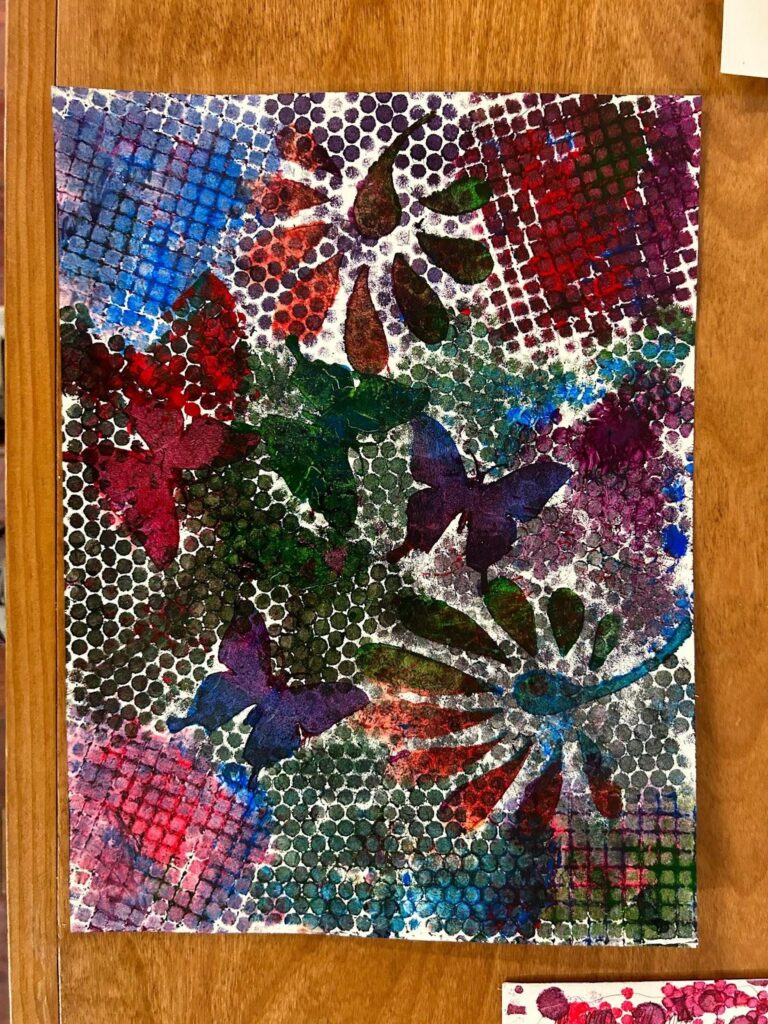
School By Eupiphanie
School needs to understand
that every student
and teacher
have hardships outside school
and they need to try
to understand people
because not every day
you wake up
feeling happy.
We Are All Equal By Sarah
Some students understand English
Other students don’t understand English
We are all equal.
Some people wear dresses
Others wear hoodies and pants
We are all equal.
Some people speak Arabic
Some people speak English
We are all equal.
Some people live in an apartment
Others live in a house
We are all equal.
We are all equal
So we shouldn’t be mean to each other.
Wile
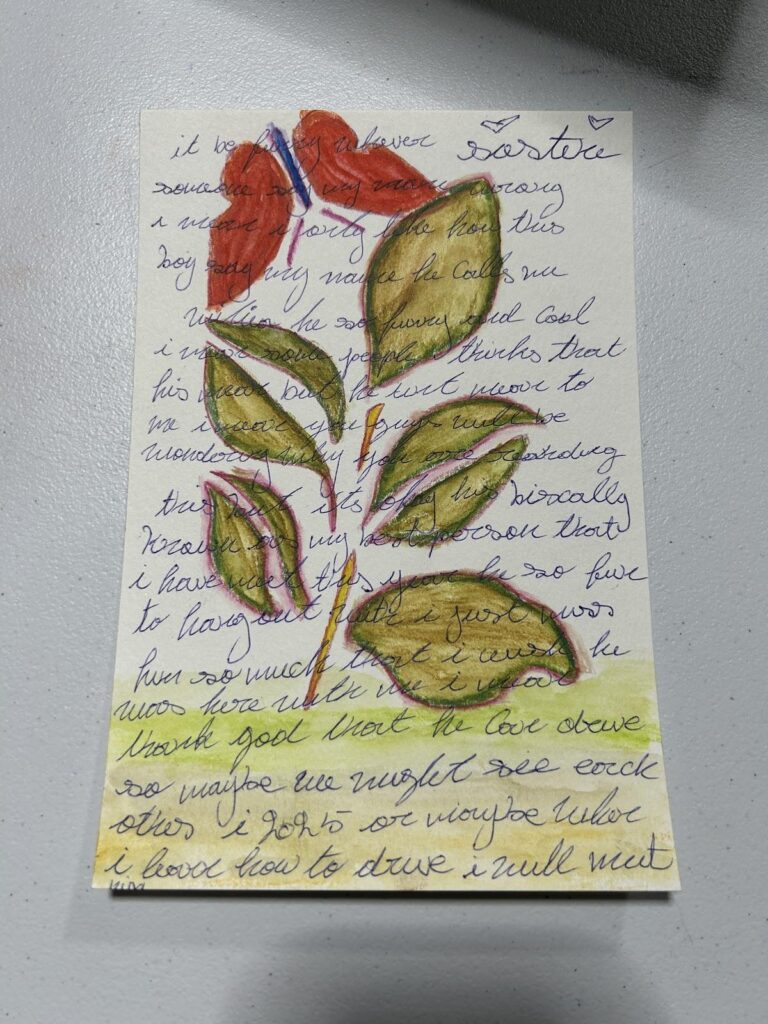
- Categories:
